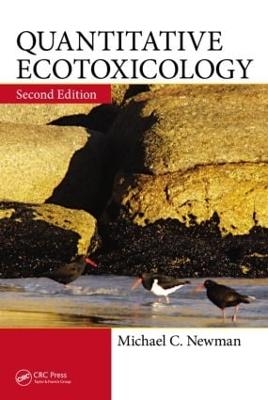
Quantitative Ecotoxicology
Crc Press Inc (Verlag)
9781439835647 (ISBN)
Encouraging a more rigorous inferential approach to research, the book examines the quantitative features of the science of ecotoxicology. The first chapters lay the foundation by introducing fundamental concepts and definitions. The author traces the historical perspective, rationale, and characteristics of scientific ecotoxicology as well as the general measurement process. He also considers methodologies for defining and controlling variance, which could otherwise exclude valid conclusions from ecotoxicological endeavors.
The book then discusses ecotoxicological concepts at increasing levels of ecological organization and outlines quantitative methods used to measure toxicant accumulation and effects. Reflecting the importance of establishing type I and type II error rates, it highlights design issues, particularly sample size and power estimation. The final chapter summarizes the book with a brief discussion of ecotoxicology from a nonregulatory perspective.
Extensively updated, this second edition has been expanded to include terrestrial as well as aquatic ecotoxicology. Requiring only a basic knowledge of statistics, this highly readable book is suitable for graduate students and researchers as well as practicing environmental scientists and engineers. It guides readers to better understand the fate and effects of toxicants in the biosphere—and helps them frame this understanding in quantitative terms.
What’s New in This Edition
More than 40 new figures and 20 new worked examples
Updated measurement quality methods and software
Expanded coverage of synecological models and methods
More integration of Bayesian concepts
Appendices for power analysis and basic matrix methods
Additional mixture toxicity and up-and-down methods
Greatly expanded discussion of significance testing
Expanded discussion of metapopulations
Matrix tools for population demography
Light isotope-based models for trophic transfer of toxicants
Inclusion of metacommunity and SHE analysis techniques
R script examples by Eduard Szöcs (University Koblenz-Landau) available at http://edild.github.io/blog/categories/quantitative-ecotoxicology-with-r/
Michael C. Newman is currently the A. Marshall Acuff Jr. Professor of Marine Science at the College of William and Mary’s Virginia Institute of Marine Science, where he also served as Dean of Graduate Studies for the School of Marine Sciences from 1999 to 2002. His research interests include quantitative ecotoxicology, environmental statistics, risk assessment, population effects of contaminants, metal chemistry and effects, and bioaccumulation and biomagnification modeling. In addition to more than 125 articles, he has authored five books and edited another six on these topics. The English edition and Mandarin and Turkish translations of Fundamentals of Ecotoxicology have been adopted widely as the textbook for introductory ecotoxicology courses.
Introduction. The Measurement Process. Bioaccumulation. Lethal and Other Quantal Responses to Stress. Statistical Tests for Detection of Chronic Lethal and Sublethal Stress. Population and Metapopulation Effects. Community Effects. Summary. Appendices.
| Erscheint lt. Verlag | 28.9.2012 |
|---|---|
| Zusatzinfo | 132 Tables, black and white; 101 Illustrations, black and white |
| Verlagsort | Bosa Roca |
| Sprache | englisch |
| Maße | 178 x 254 mm |
| Gewicht | 1179 g |
| Themenwelt | Mathematik / Informatik ► Mathematik |
| Naturwissenschaften ► Biologie ► Biochemie | |
| Naturwissenschaften ► Biologie ► Limnologie / Meeresbiologie | |
| Naturwissenschaften ► Biologie ► Ökologie / Naturschutz | |
| ISBN-13 | 9781439835647 / 9781439835647 |
| Zustand | Neuware |
| Informationen gemäß Produktsicherheitsverordnung (GPSR) | |
| Haben Sie eine Frage zum Produkt? |
aus dem Bereich


